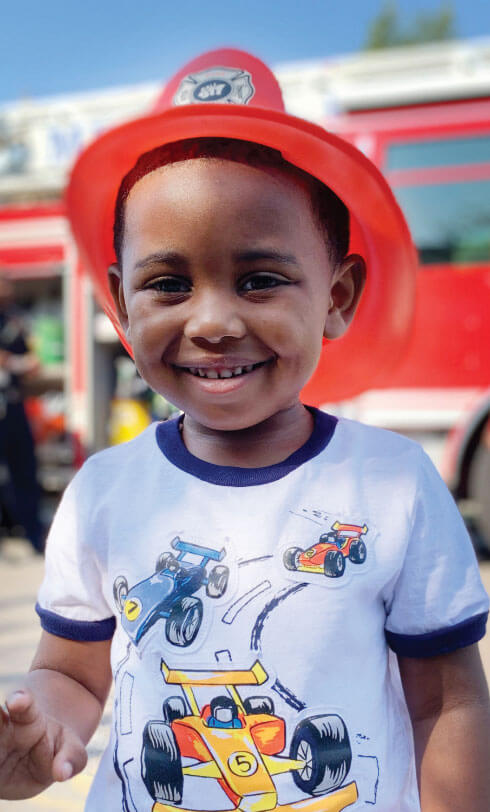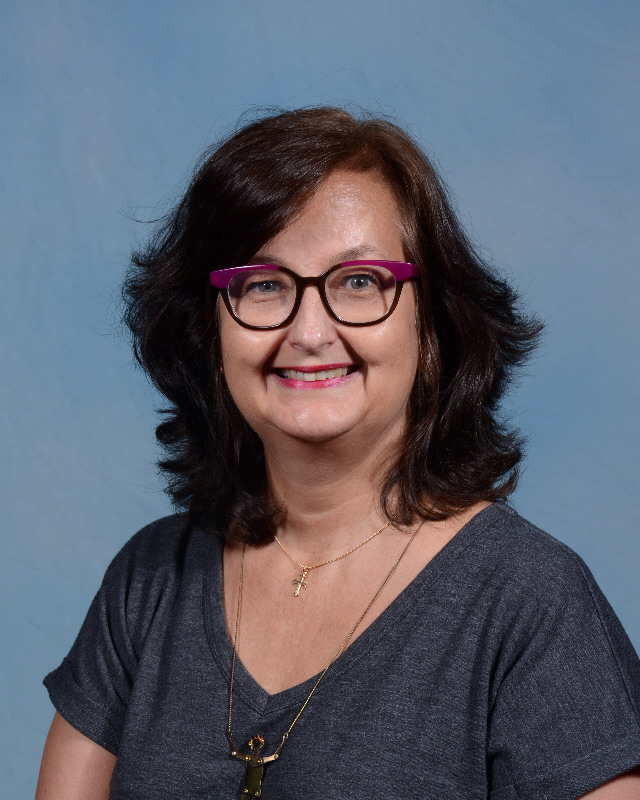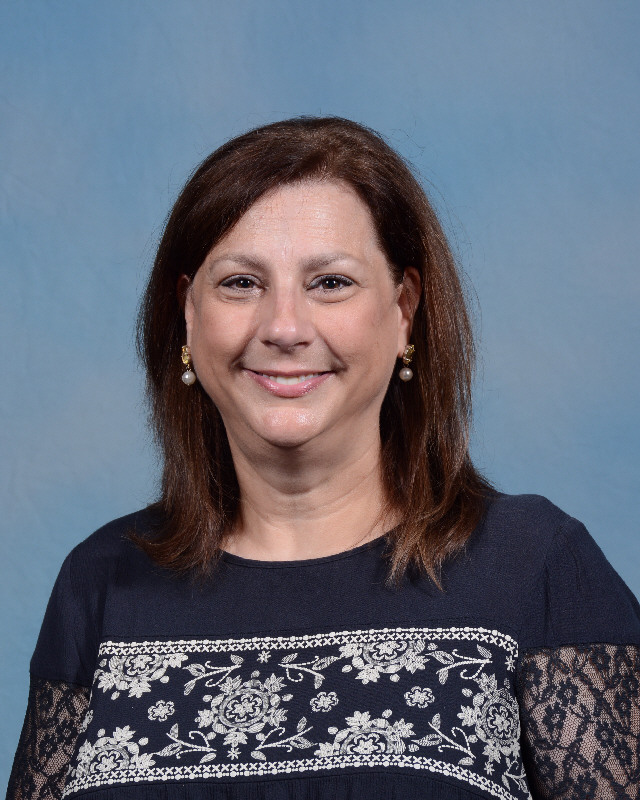Expressing and Connecting Through Art
Visual arts students express themselves through drawing, painting, printmaking, sculpture, pottery, and digital arts. Through these experiences, students learn that just as they feel a connection with the pieces they create, God as their creator feels an infinitely deeper connection with them as his highest creation.
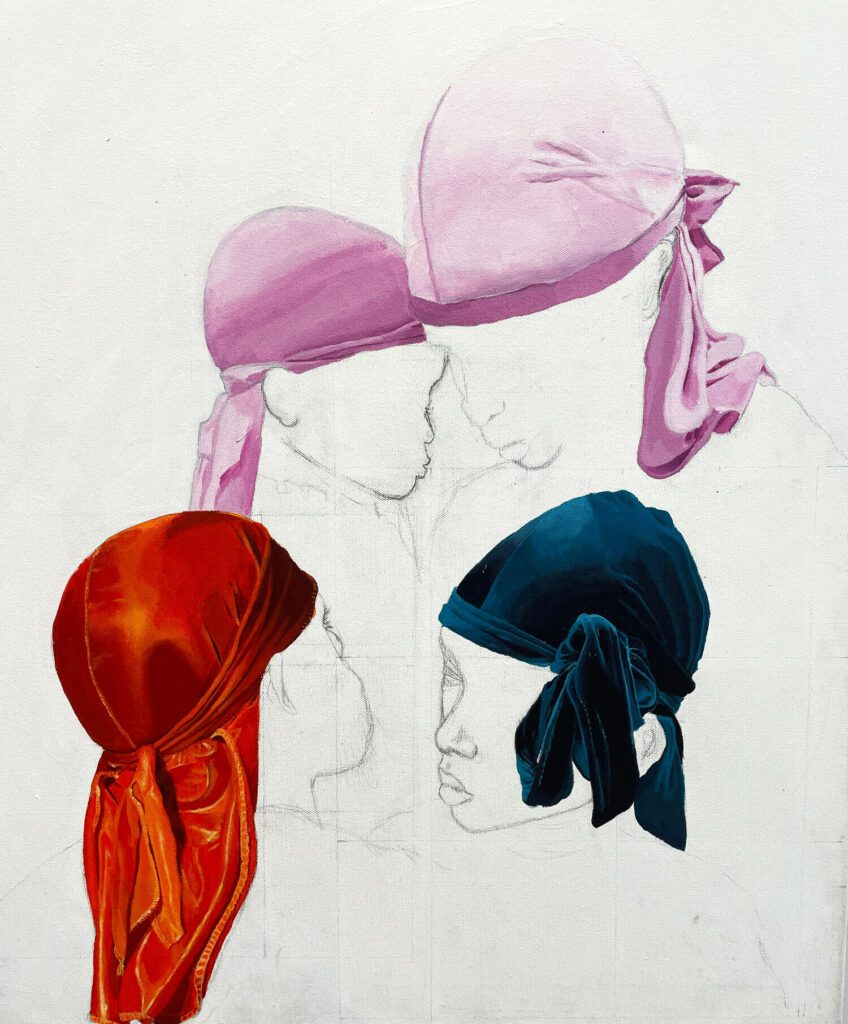
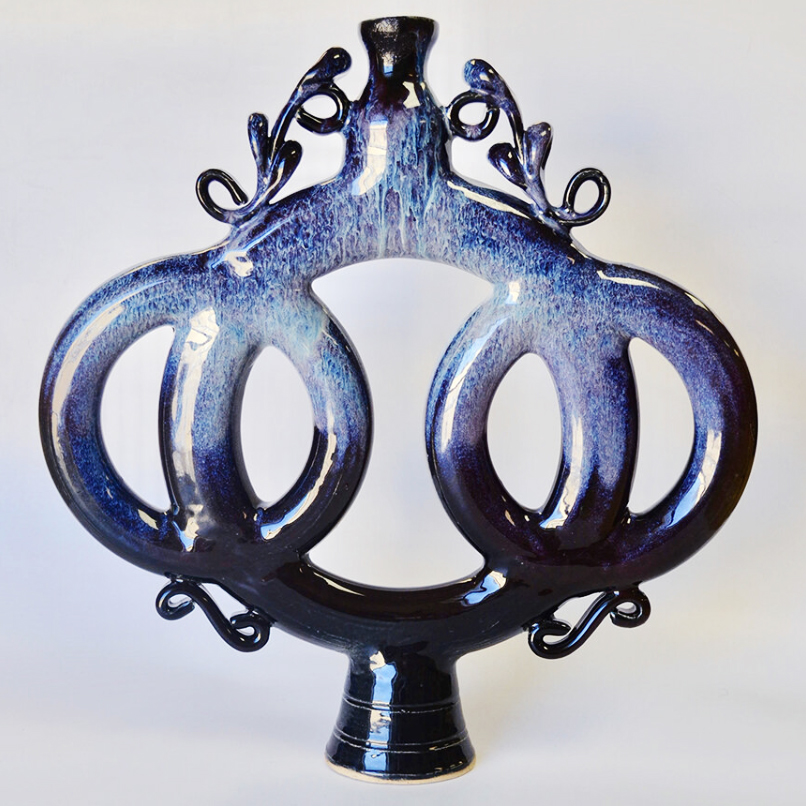
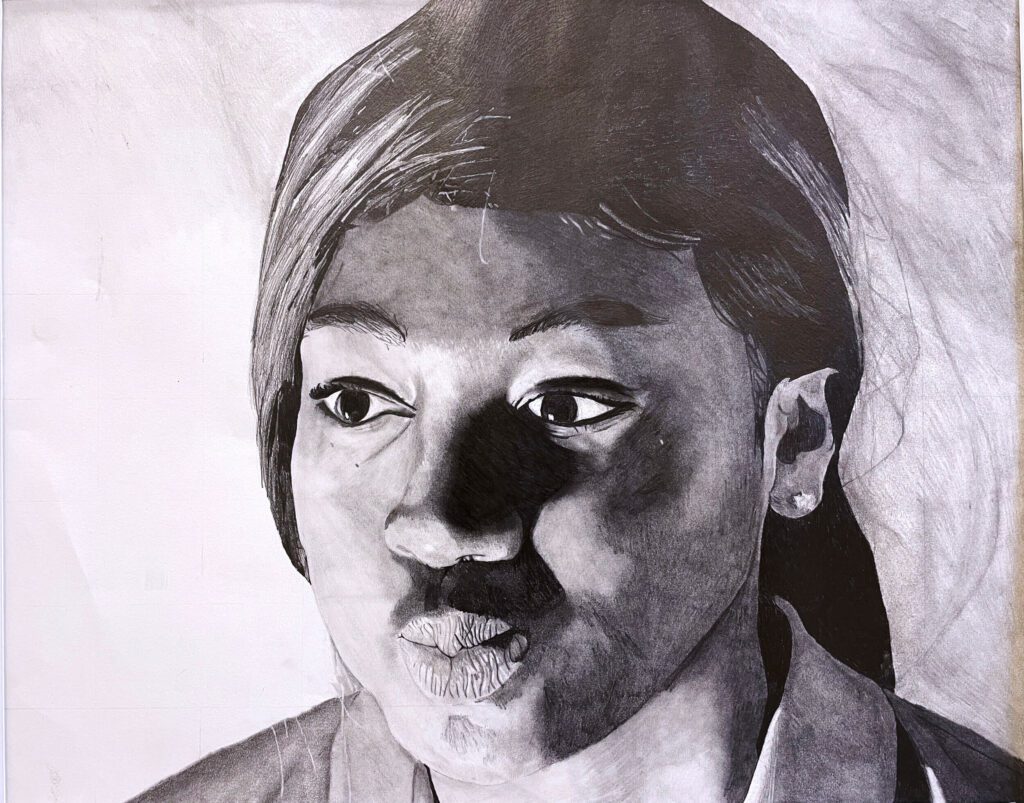
The 3D art program is virtually unmatched in the city of Memphis. Not only has my son learned how to make pottery, but he has learned how to communicate his ideas about art.
Upper School Parent
Offerings
-
Little Harding
We believe the the best creative art experiences for young children emphasize process over product. Visual arts at Little Harding focus on expressive art and art appreciation. Our teachers guide students to discover meaning in art and to make connections between works of art and the world around them. When creating art themselves, children use all kinds of media and tools to discover their own gifts and joys.
-
Lower School
The lower school visual arts program gives students an opportunity to experiment with different art media to express their creativity and develop their talents. Students are exposed to well-known artists and art from other cultures, learn artistic concepts, and develop an art vocabulary. After-school art enrichment programs are available through LEAP.
-
Middle School
Fine Arts Exploration (grade 6)
Sixth graders take a Fine Arts Exploration course where they experience band, chorus, visual art, and theatre. This helps them find their particular interests and aids them in choosing fine arts electives throughout the rest of upper school.Visual Art (grades 6–8)
Prerequisite: Teacher approval after first year of art
Middle School Art is designed for students who would like the opportunity to explore art for a full year. A cross-curricular approach helps students make connections between art experiences and the world around them. Through drawing, printmaking, painting, weaving, sculpture, and digital imagery, techniques and media are studied alongside applicable elements and principles of design. This foundation prepares students for a high level of success in Art I. -
Upper School
Art I (grades 9–12)
Art I is an introductory course focusing on the study of the elements of art, principles of design, and their relationship to one another in a composition. The vocabulary of art and the tools of artists are examined alongside art history. Techniques in drawing, acrylic painting, watercolor painting, pottery, and colored pencil are taught during this course. Art I provides students with new communication abilities and a deeper insight into themselves, others, and their environment. Throughout the year, students will have the opportunity to use critical, analytical, and creative thinking skills, increasing their perception of their environment.2D Art I (grades 10–12)
Prerequisite: Teacher approval
This course focuses on the art of two dimensions. Students will create art by drawing, painting, and printmaking, as well as through mixed media and digital processes. Students will focus on building composition and design skills while experimenting with a variety of media and subject matter. Elements, principles, and vocabulary of art and the tools of artists will be examined alongside art history at a deeper level.Honors 2D Art II (grades 11–12)
Prerequisite: Teacher approval
Drawing, painting, printmaking, mixed media and digital processes continue to be used in this class. The course focuses on building composition and design skills at a more complex level while experimenting with a variety of media and subject matter. Students have more freedom to choose projects of an independent nature in this second year of 2-D Art.Honors 2D Art III (grade 12)
Prerequisite: Teacher approval
This class is for seniors who are seriously planning to pursue a career field in the visual arts such as fine art, graphic design, illustration, architecture, and other design related fields. The first quarter of the year is spent working on assignments that involve drawing from a still life. The drawings created in this context are excellent to use as submissions for college portfolios. The remainder of the year comprises projects based on themes and subjects that allow the student to work independently to develop a personal style and to explore techniques with various art media.3D Art (grade 10–12)
Prerequisite: Teacher approval
3D Art focuses primarily on intermediate and advanced techniques in pottery. Both hand-building and wheel-thrown techniques are explored with emphasis on creating pieces with both excellent craftsmanship and high-quality design. Some sculptural media other than clay is incorporated into the curriculum to a lesser degree, and students may be expected to work in those media as well. The “potter and the clay” metaphor is explored on a deeper level than in Art 1. Students use their gifts in the ceramic arts to create work to be donated to the Memphis Empty Bowl Project.Honors 3D Art II (grades 11–12)
Prerequisite: Teacher approval
This second year of 3D Art primarily focuses on advanced techniques in pottery. Both hand-building and wheel-thrown techniques continue to be explored with emphasis on continuing to understand what factors contribute to excellent design in ceramics and sculptures. Students are expected to compete works that are more conceptual in nature rather than solely utilitarian. More independent work is assigned in this course as students gain the ability to work on their own without as much direct instruction from the teacher. The “potter and the clay” metaphor is explored on a deeper level than in Art 1. Students use their gifts in the ceramic arts to create work to be donated to the Memphis Empty Bowl Project.Honors 3D Art III (grade 12)
Prerequisite: Teacher approval
This third year of 3D Art primarily focuses on advanced techniques in pottery. Both hand-building and wheel-thrown techniques continue to be explored with emphasis on continuing to understand what factors contribute to excellent design in ceramics and sculptures. Students are expected to compete works that are more conceptual in nature rather than solely utilitarian. More independent work is assigned in this course as students gain the ability to work on their own without as much direct instruction from the teacher. The “potter and the clay” metaphor is explored on a deeper level than in Art 1. Students use their gifts in the ceramic arts to create work to be donated to the Memphis Empty Bowl Project.Digital Art (grades 10–12)
Prerequisites: Art I and teacher approval
Students learn to apply the elements and principles of art explored in Art I while creating digital art with software including Adobe Photoshop and Adobe InDesign. Students learn to communicate through the use digital photography and other digital media. Emphasis is placed on understanding how the print media can affect the spiritual lives of individuals.Digital Art II (grades 11–12)
Prerequisites: Digital Art I and teacher approval
Building on skills learned in Digital Arts I, students create more complex projects and explore new techniques in the Adobe Creative Suite software series, such as Photoshop, InDesign, Illustrator; as well as Apple’s iMovie. Students expand on their knowledge of visual communication and design thinking. Emphasis is placed on understanding how visual communication through design is another tool that can be used to God’s glory.
Visual Arts News
-
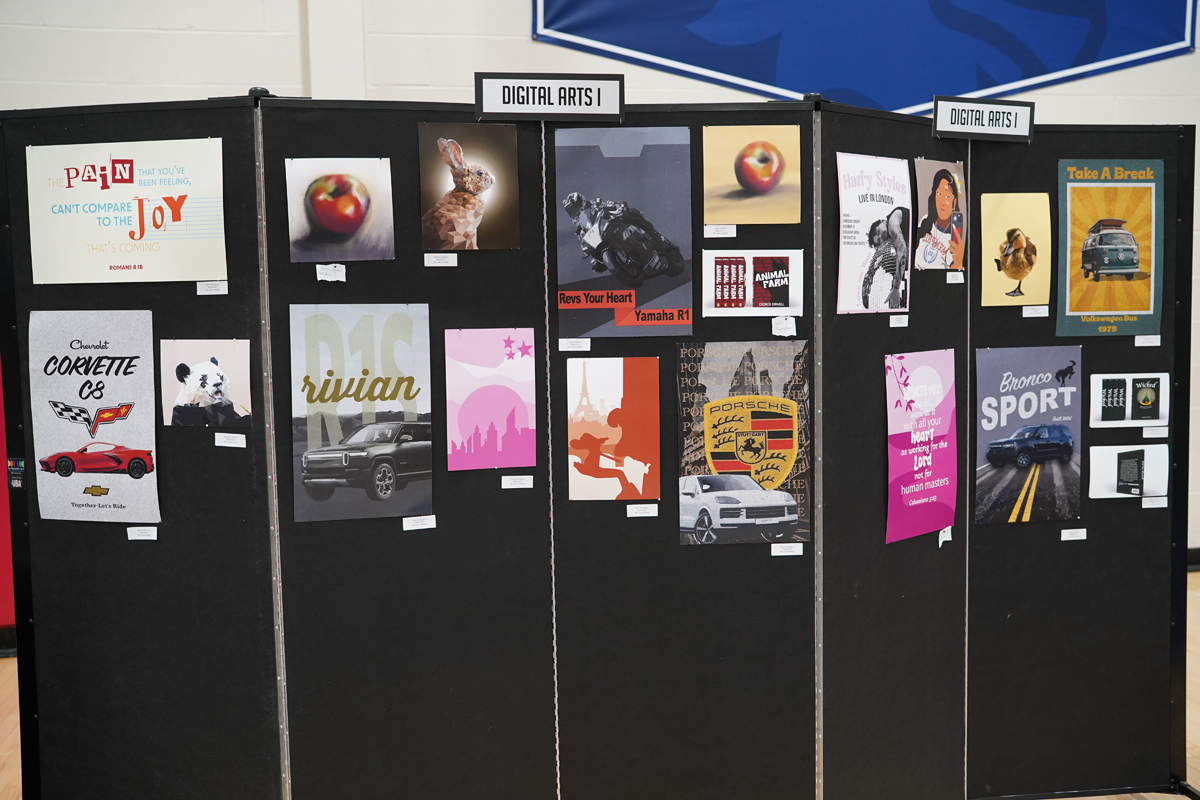 Read More
Read MoreStudent Art Show 2025
Last Thursday the visual arts department hosted their annual student art show to exhibit the fabulous work of our middle […] -
 Read More
Read MorePottery Students Learn Raku Firing Method
Mr. Efaw and our pottery students heated up the Raku kiln recently for a special firing. Pots were heated to […] -
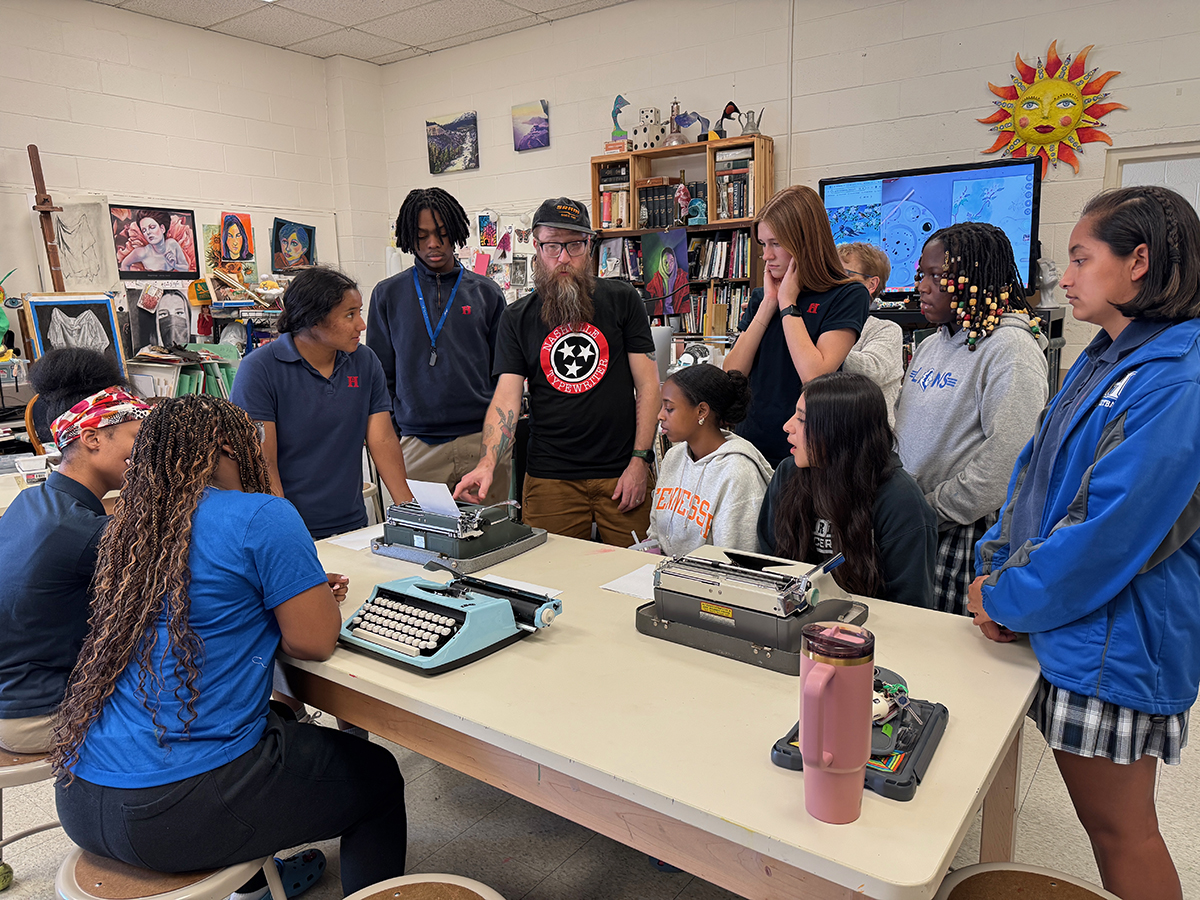 Read More
Read MorePoet, Writer, and Artist Josh Brindle Visits 2D Art Classes
Thank you to Josh Brindle for visiting with our 2D art classes this week. Our students loved seeing his typewriter […] -
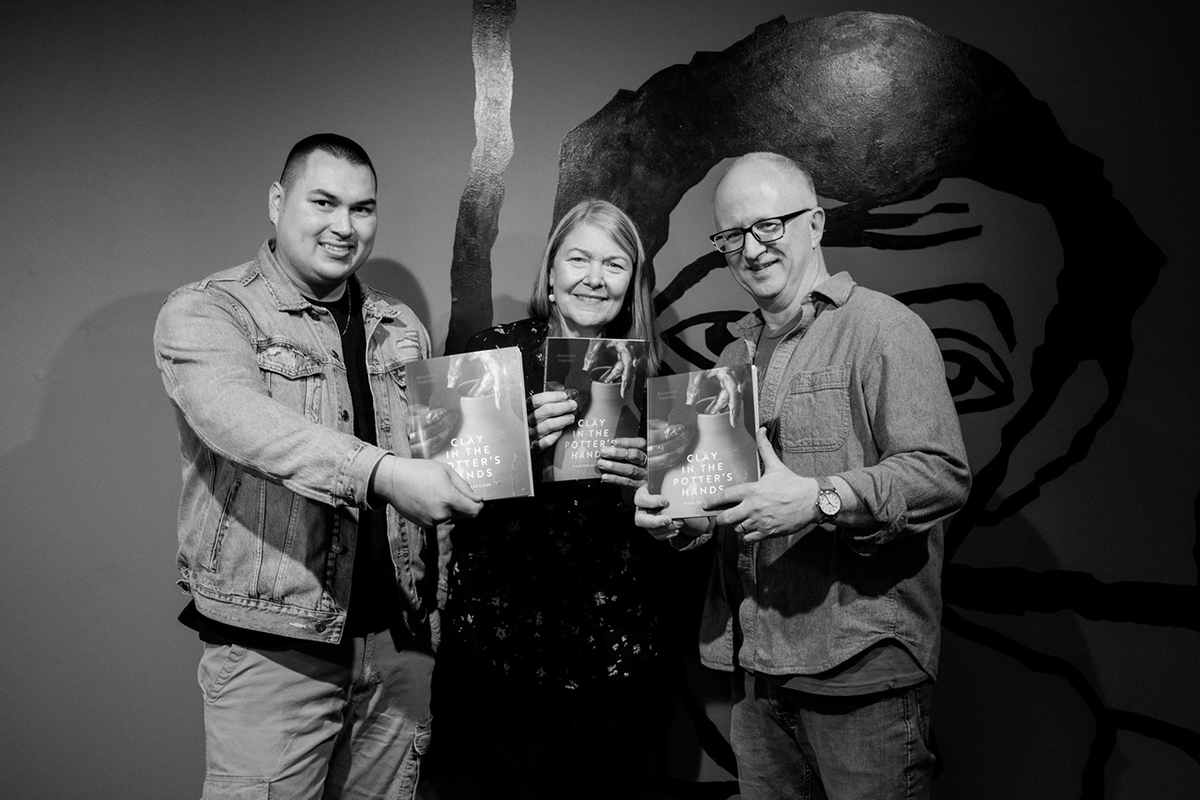 Read More
Read MoreEddy Efaw Contributes to New Book Release
Congratulations to pottery teacher Eddy Efaw who is now a published author! He contributed the “Studio Insights” for each chapter […]
Meet Our Art Teachers
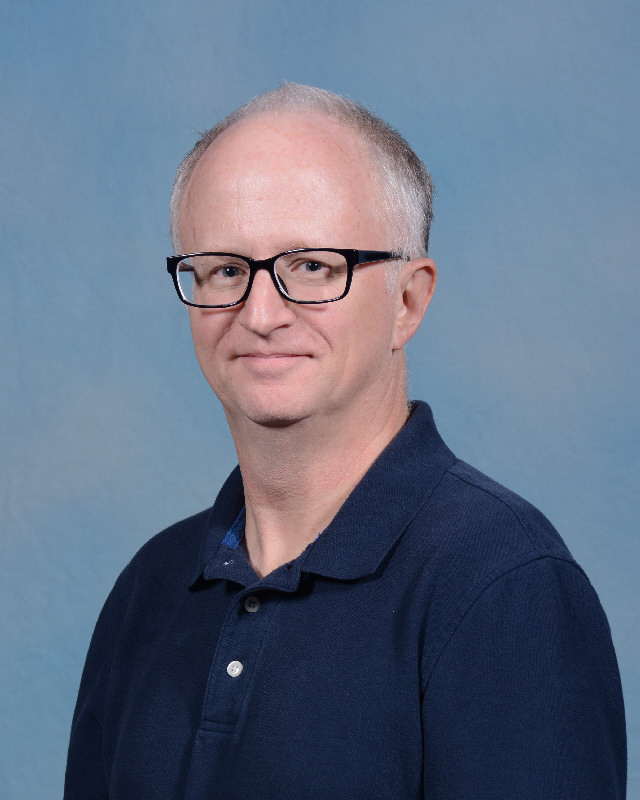
Eddy Efaw
Art 1, 3-D Art
Department Chair of Visual Arts
Director of Institute for Faith and the Arts
Email
Mr. Efaw’s Deep Hope: As God’s Masterpiece you will delight in his created beauty and in turn become masterpiece makers in the lives of those around you.
